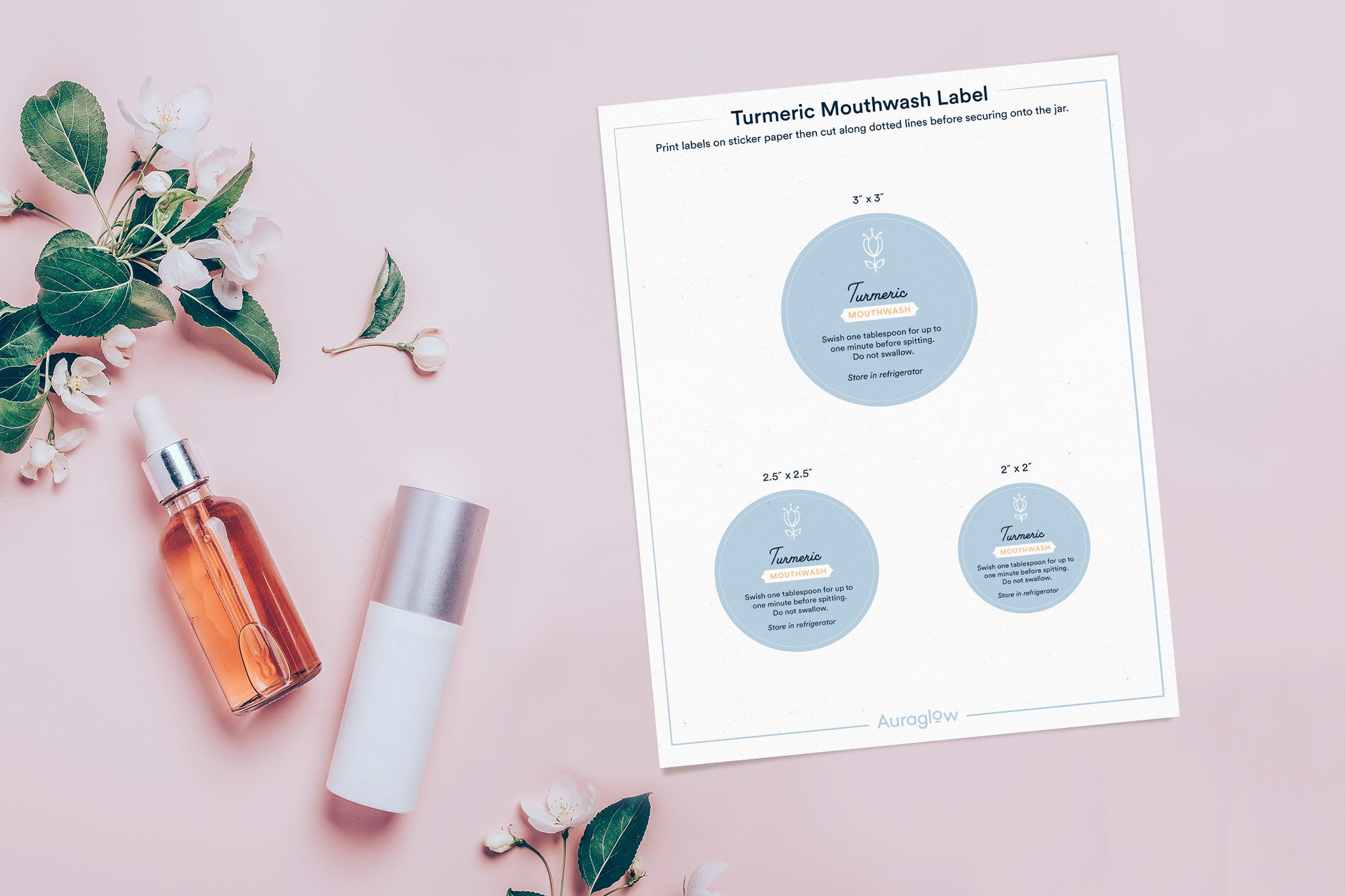

Brushing and flossing are crucial to maintaining a healthy smile — but what about mouthwash? The American Dental Association has found that mouthwash can reduce or control plaque, gingivitis, bad breath, and tooth decay. Making your own homemade mouthwash can be a great alternative to drug store options that may contain harsh ingredients.
Creating your own mouthwash allows you to remove or add ingredients to target your specific concerns like whitening teeth and adjust the taste to make it more appealing for a quick swish. In addition to homemade mouthwashes being customizable, they’re also inexpensive and eco-friendly if you choose to store your mouthwash in reusable glass bottles.
If using mouthwash isn’t part of your oral care routine, it can be an easy step to incorporate. While it’s a matter of preference, using mouthwash after brushing can help you reach any areas of your mouth that aren’t easily accessible with a toothbrush. Use as much mouthwash as is directed and swish — but don’t swallow — for 30 seconds to one minute before spitting the mouthwash out in the sink. You can buy a timer for your bathroom to ensure you’re rinsing for the correct amount of time.
We’ve rounded up seven homemade mouthwash recipes that target a wide variety of oral concerns to keep your breath fresh and teeth healthy.
Turmeric Mouthwash Recipe
Best for: Reducing inflammation and irritation and preventing tooth decay
Turmeric is a bright yellow-orange spice that contains curcumin, which can help reduce inflammation and protect the mouth against gum disease and gingivitis. Turmeric can also reduce stains on teeth and prevent plaque build-up. L-arginine has also been shown to reduce the incidence of cavities. While this rinse won’t solve the underlying problem that’s causing inflammation or irritation, it can ease your symptoms.

pH Balancing Mouthwash Recipe
Best for: Those who frequently consume acidic food and drink like coffee, red wine, and kombucha
Frequent consumption of acidic food and drink can be damaging for the teeth. The high acidic content in common beverages like coffee and red wine provides opportunities for the enamel of your teeth to break down, which can lead to bad breath, gingivitis, and cavities. This rinse will help neutralize acid and the bacteria that cause plaque and decay with ingredients like xylitol.



Minty Clove Mouthwash
Best for: Bad breath
Combat bad breath with a few common pantry staples. Cinnamon is a powerful bad breath fighter due to the cinnamic aldehyde, which reduces the amount of bacteria in your saliva. The trio of clove, cinnamon, and peppermint will zap bad breath and can be used as often as you’d like because it doesn't contain any harsh chemicals.


Peppermint and Tea Tree Oil Mouthwash Recipe
Best for: Bad breath and irritated gums
With only three ingredients, this peppermint and tea tree oil mouthwash recipe is perfect for eliminating bad breath. Peppermint is a common ingredient in many toothpastes and thanks to its antiseptic properties, it’s great for combating bad breath. Tea tree oil is also a natural remedy for bad breath and can also help to relieve irritated gums.


Apple Cider Vinegar Mouthwash Recipe
Best for: Bad breath
Apple cider vinegar is the star ingredient in this simple mouthwash. Apple cider vinegar contains a host of minerals including calcium, potassium, sodium, and magnesium that help to support the overall health of your teeth. Apple cider vinegar also contains bad breath-zapping benefits, which will help set you up for success ahead of your next kiss.


Salty Mouthwash Recipe
Best for: Inflammation and gum issues
Sea salt rinses have long been prescribed by dentists for tooth pain and inflammation because sea salt has antibacterial and anti-inflammatory properties. This mouthwash can help with gum issues or inflammation and can also help to clean stains on your teeth. Additionally, baking soda has been shown to be an inexpensive way to whiten teeth.


Aloe Vera Mouthwash Recipe
Best for: Gingivitis and inflammation
Much more than just a remedy for sunburn discomfort, the anti-inflammatory and antibacterial properties in aloe vera make it an excellent ingredient for relieving inflammation and other oral problems. While aloe vera can be a great addition to your oral care routine, it’s not right for everyone. If you take medication to control your blood sugar, you should consult with your doctor before using it as it may cause your blood sugar levels to drop.


Bottom Line: Homemade Mouthwash Is a Great Addition to Your Dental Hygiene Routine
Creating your own mouthwash lets you be in control of the ingredients and tailor your recipe to your specific needs. You can also get creative by adding or removing essential oils to make the flavor more appealing. By opting for homemade rather than store-bought, you’ll likely save money and help lessen your impact on the environment by reusing glass bottles instead of going through plastic bottles.
Adding mouthwash into your oral care routine can help to relieve bad breath and prevent cavities from forming. After testing out the recipes above and finding one you like, you’ll be well on your way to a stronger and healthier smile.
Disclaimer: The mouthwash recipes above were reviewed by a dental professional to ensure they’re safe for consumption.










